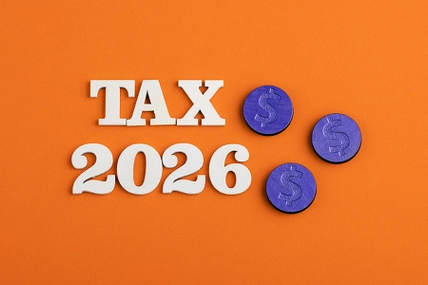Composed of 96 articles arranged in 10 chapters, the 2023 Law on Bidding creates a complete and consistent legal framework on bidding, procurement and use of state capital.
Composed of 96 articles arranged in 10 chapters, the 2023 Law on Bidding (the Law) regulates the state management of bidding activities; competence and responsibility of agencies, organizations and individuals in bidding activities; and selection of contractors to implement bidding packages and selection of investors to implement business investment projects.
Effective from the beginning of 2024, the Law supersedes its 2013 predecessor with revisions made in 2016, 2017, 2019, 2020 and 2022 (the 2013 Law).
The Law creates a complete and consistent legal framework on bidding, procurement and use of state capital.
Compared to the 2013 Law, the Law has noteworthy changes.
Scope of regulation and subjects of application
The scope of regulation, subjects of application and principles of application of the Law inherits and improves the 2013 Law with three new contents.
First, the Law adds enterprises with charter capital wholly held by state enterprises to its subjects of application in order to more closely manage bidding activities of enterprises with capital invested by state enterprises.
Second, the Law improves regulations on selection of investors to implement business investment projects, including land-using investment projects subject to organization of bidding in accordance with the land law; and investment projects subject to organization of bidding to select investors in accordance with the relevant specialized laws.
Third, the Law clarifies principles of application of the Bidding Law, relevant laws, treaties and international agreements on official development assistance and concessional loans of foreign donors.
At the same time, the Law introduces new provisions to enhance the autonomy and self-responsibility of agencies, organizations and enterprises for selection of contractors on the basis of ensuring publicity, transparency and economic efficiency and accountability for procurement using capital acquired from production and business activities of state enterprises; and selection of contractors to provide oil and gas services and goods serving oil and gas activities under oil and gas contracts, and other special procurement activities.

Forms of contractor selection
Under Article 20 of the Law, forms of contractor selection include: open bidding; restricted bidding; contractor appointment; competitive offer; direct procurement; self-execution; community participation in execution; and price negotiation; and contractor selection in special cases.
The Law adds a number of cases of applying contractor appointment to speed up the implementation of a number of large, important, urgent projects and other special cases of procurement.
The Law empowers ministers and chairpersons of provincial-level People's Committee to decide on forms of contractor selection in special cases. The Prime Minister will only decide on the selection of contractors for bidding packages subject to requirements on national defense and security, external affairs and territorial borders.
Noticeably, lawmakers puts into the Law the provisions on application of forms of contractor selection in special cases specified in Prime Minister Decision 17/2019/QD-TTg dated April 8, 2019, on a number of bidding packages and procurement contents to maintain routine operations, which are eligible for contractor selection in special cases specified in Article 26 of the Bidding Law. In addition, the regulations on limits of bidding package prices for application of contractor appointment specified in Decree 63/2014/ND-CP dated June 26, 2014, detailing a number of articles of the Bidding Law regarding contractor selection, are also included in the Law.
Incentives in contractor selection
The Law introduces incentive policies for businesses producing goods of Vietnamese origin and innovative startups in order to promote technology transfer, provide support for goods of domestic origin, and innovative products, thus helping these businesses better access the market.
Article 10 of the Law specifies subjects eligible for incentives in contractor selection, including:
- Goods of Vietnamese origin;
- Environmentally friendly products and services specified by the law on environmental protection;
- Domestic contractors producing goods of Vietnamese origin in conformity with bidding dossiers;
- Foreign contractors entering into joint-name entities with domestic contractors in which the domestic contractors undertake 25 percent or more of the value of jobs of a bidding package;
- Domestic contractors participating in bidding as independent contractors or entering into joint-name entities with other domestic contractors when participating in international bidding;
- Contractors being micro-enterprises or small-sized enterprises specified by the law on support for small- and medium-sized enterprises;
- Contractors being innovative startups specified by law; and,
- Contractors that employ female workers, war invalids and people with disabilities, or ethnic minority people accounting for 25 percent or more of their total employees.

Bidding process and procedures
To ensure transparency and prevent collusion and fraud in bidding activities, the Law’s provisions are aimed at promoting online bidding.
The Law abolishes some procedures for appraisal and approval procedures in intermediary stages and allows prior deployment of some bidding activities. It also sets the minimum time limit for contractors and investors to prepare bid dossiers and clarify bid dossiers and the maximum time limit for competent persons, project owners and bid solicitors to post information in bidding.
The Law has new provisions on connection and sharing of information between the Vietnam National E-Procurement System and relevant portals and systems to shorten the time periods for contractors to prepare bid dossiers and for project owners to evaluate bid dossiers.
Transitional provisions
The 2013 Law and guiding documents still apply to:
(i) The selection of contractors for inclusion in the shortlists, selection of contractors, conclusion of contracts and management of contract performance, for bidding packages for contractor selection for which dossiers of invitation for expression of interest, dossiers of invitation to prequalification, bidding dossiers, and dossiers of requirements have been approved and issued before January 1, 2024;
(ii) The selection of investors, conclusion of contracts and management of contract performance, for business investment projects for which bidding dossiers have been approved and issued before the above date.
The Government will issue transitional provisions applicable to these projects.
(iii) The selection of investors to implement land-using investment projects during the period from January 1, 2024, to the effective date of the amended Land Law.
Particularly, contracts for which bid winners of supplies and chemicals are obliged to supply medical devices for use of these supplies and chemicals and which are signed before January 1, 2024, may continue to be performed till their expiry dates but for no more than five years from that date.
By: VLLF











